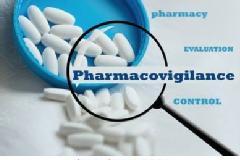Pharmacovigilance courses typically cover a wide range of topics to ensure a comprehensive understanding of drug safety and regulatory requirements.
1. **Introduction to Pharmacovigilance**: Overview of the field, its importance, and historical context.
2. **Regulatory Requirements**: Understanding global and local regulations, including ICH guidelines.
3. **Adverse Drug Reactions (ADRs)**: Identifying, assessing, and managing ADRs.
4. **Signal Detection**: Techniques for detecting safety signals from data.
5. **Risk Management**: Strategies for minimizing drug-related risks.
6. **Clinical Trials Safety**: Ensuring safety during clinical trials.
7. **Post-Marketing Surveillance**: Monitoring drug safety after it has been released to the market.
8. **MedDRA Coding**: Using the Medical Dictionary for Regulatory Activities for coding adverse events.
9. **Ethics in Pharmacovigilance**: Ethical considerations and best practices.
10. **Reporting and Documentation**: Proper documentation and reporting of adverse events.
11. **Software Training**: Using pharmacovigilance software for data management and analysis.
12. **Aggregate Reporting**: Compiling and analyzing data for periodic safety reports.
13. Safety systems Configuration including product, study, user configurations
Case form creation






